x291


x291

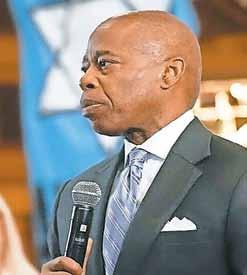
After nearly two years of harassment and high tensions, New York doesn’t feel like “Hymietown” anymore.
That derisive dig by Jesse Jackson during his presidential campaign in 1984 put New York Jews on edge, but we fought back and won.
Now we face something much worse — the mayoral candidacy of Zohran Mamdani. He does not oppose Israeli or Netanyahu “policies” but rather the very existence of the Jewish state (as in “Palestine shall be free, from the river to the sea,” a chant he won’t criticize). Mamdani’s doubling down on his refusal to sanction those who would “Globalize the Intifada” will make New York Jews less safe.
If that’s not bad enough, when he’s not focused on deriding Jewish values and putting Jewish lives at risk, Mamdani is determined to wreck New York’s economic engine to further his utopian socialist vision.
If there’s a path to derail Mamdani’s corona-
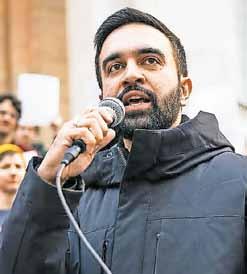
tion, we should follow it. At the moment, that appears to be coalescing behind Mayor Eric Adams. But signaling support for Adams isn’t enough. Jewish leaders must do what they failed to do in the Democratic primary — build coalitions with other communities threatened by Mamdani, educate the broader community to the catastrophe that awaits New York if he’s elected, and execute a get-out-the-vote drive. Meanwhile, Mamdani forces are hard at work, as illustrated by two fact-deprived Jewish-authored opinion pieces in the New York Times last weekend (see Gary Rosenblatt’s column about that on page 2); by numerous other articles that sugarcoat Mamdani’s positions, and in TV and podcast appearances by Jewish fifth columnists young and old.




Uniting behind Adams is essential if there’s any chance — and it’s a longshot — of stopping Mamdani. That requires the withdrawal of both a failed Andrew Cuomo (who’s still on the November ballot as an independent) and a doomed Curtis Sliwa (the Republican nominee).
Only President Donald Trump is in a position to read the riot act to Sliwa, make him a job offer in Washington that he “can’t refuse,” and get him to withdraw. Trump can also nudge New York’s Republican county leaders to see the light and select Adams to replace Sliwa on their ballot (adding the GOP line to Adams’ two independent lines). But whether Trump sees such a move to be in his interests is debatable.
A Mayor Mamdani would be a Trump

whipping boy, perhaps rightly so; and while the president would certainly not deride New York as “Hymietown,” he would paint the city in grotesque colors and add to the damage done by Mamdani. While even California Gov. Gavin Newsom has moderated his leftist worldview under Trump’s assault, Mamdani, who’s pushing a socialist vision with messianic undertones, is unlikely to do so. New York Republicans, along with Trump, must decide whether the future well-being of New York and support for Israel trumps scoring political points for their party (as a disastrous Mamdani mayoralty almost certainly would do). Meanwhile, suburbanites should not assume this won’t affect them: The earthquake of New York City’s collapse will quickly ripple through the region. Sliwa will not be elected mayor. Full stop. Just as every vote for Brad Lander was in effect a vote for Mamdani in the Democratic primary, every vote for Sliwa will help push Mamdani over the finish line in November. Ed Weintrob, Editor & Publisher
Write: Editor@TheJewishStar.com

In Shakespeare’s “Hamlet,” Queen Gertrude says, “The lady doth protest too much, methinks.” Variations of this have come to mean that denying something vigorously may well indicate hiding the truth.
The classic line came to mind this weekend while reading New York Times Opinion pieces by two progressive Jewish women columnists who aggressively defended Zohran Mamdani against those who believe his candidacy for mayor of New York presents a threat to Jews.
At the crux of both pieces is the insistence that one can be anti-Israel without being antisemitic. This is certainly true in principle, but in practice the great majority of American Jews feel their identity is inextricably tied to the people and land of Israel, the home of the Jewish people since biblical times.
‘Violence that looks antisemitic may be something else,’ Gessen argues.


Younger, progressive American Jews are the exception. A relatively small but growing number of these primarily Gen Z Jews are far less engaged in Jewish religious and communal life than their elders and are more critical of Israel in terms of its relationship with Palestinians. The tension between generations is playing out in Democratic politics today.
The full-page piece in Friday’s paper by Masha Gessen, who goes by “M. Gessen” as a Times columnist, was titled “The Story of Antisemitism Needs To Be Rewritten.” Gessen asserted that it is unfair to call Mamdani antisemitic because of his strong views against Israel, and notes that he “chokes up” emotionally at times when accused of Jew hatred. “It’s hard to keep defending yourself against a false accusation,” she writes.
Gessen cites statements from Mamdani of his commitment to protect Jews in New York if he is elected mayor in November. She claims that statistics indicating an enormous spike in antisemitism in the US may be misleading because those who track such incidents “often thwart the effort to get hard information because they insist on conflating criticism of Israel with anti-Zionism and anti-Zionism with antisemitism.”
“Violence that looks antisemitic may … be something else,” Gessen argues.
The most troubling example she offers, by applying twisted logic, is the murder of the young couple shot repeatedly in the back after leaving an American Jewish Committee event at the Capital Jewish Museum in Washington in May. Gessen

suggests the shooter’s motive may have been political because: he yelled “Free Palestine,” the victims worked at the Israeli Embassy, and the shooter’s “900-word manifesto didn’t contain the word ‘Jew’ or even ‘Zionist’.”
The simple and horrifying fact, though, is that the killer didn’t know where his victims worked. He chose to shoot them because they had attended a Jewish event in a Jewish space. That’s antisemitism.
On Sunday the Times published an Opinion by columnist Michelle Goldberg entitled “Plenty of Jews Love Zohran Mamdani.” (Note to the headline writer: Since when does voting for someone mean you love them?)
Goldberg acknowledges that she understands “why Jews who see antiZionism and antisemitism as synonymous find Mamdani’s rise alarming.” (In fact, that’s most Jews.)
She goes on: “There’s no question that he sympathizes with Palestinians over Israelis.” Later in the piece she writes, “one needn’t even be an ardent backer of Israel to have reservations about Mamdani,” noting his lack of political experience and radical economic views, and adding that she thought “it was a terrible mistake for Mamdani to try to justify the phrase “globalize the intifada” on a podcast this month.
But Goldberg is taken with the
Distinguished University Professor Touro College

Outside of Israel, New York is the most Jewish city in the world. The five boroughs introduced seltzer, bagels, deli and Middle East cuisine — even the clandestinely Jewish sitcom “Seinfeld”—to the American masses.
Despite all that ethnic gravitas, however, there’s a good chance that come November, New York will be governed by an antisemitic mayor. That’s right, if the Democratic Party retains its time-honored hold on the city electorate, the next Hizzoner will be an avowed Jew-hater.
The woefully inexperienced Zohran Mamdani’s triumphant march to Gracie Mansion would also result in the first Muslim leading a major American city. (Is a neo-Marxist even allowed to live in a mansion?)
Diversity imperatives of the Democratic Party aside, everything about Mamdani is wrong: too young, slavish woke convictions, casualness about crime, antagonism toward the NYPD, hostility to big business, utterly naive understanding of municipal finances, a manifestly socialist agenda forced upon a capitalist colossus, an open disdain for whiteness and an actual get-out-ofjail-free card for all minorities — except Jews.

If he wins, Mamdani will be anointed the male version of AOC — she, the erstwhile Millennial bartender and Squad leader; he, a failed rapper who found his voice as the darling of the pro-Hamas, pro-Ayatollah, anti-American, antiWestern and, of course, antisemitic in-crowd.
AOC and Mamdani may soon become the Ruth and Gehrig of the Democratic Party. This Murderer’s Row, however, would end up killing Manhattan. Expect to see an exodus of thousands of wealthy New Yorkers who for nearly a half century expanded the city’s tax base and restored the squalid SoHo, Tribeca and Times Square, and developed Battery City, The High Line and Hudson Yards.
Occupy Wall Street will finally have been
Keffiyeh-masked hordes who intimidated Jewish students will be emboldened, knowing their mayor participated in and endorsed such spectacles — without ever hiding behind a mask!
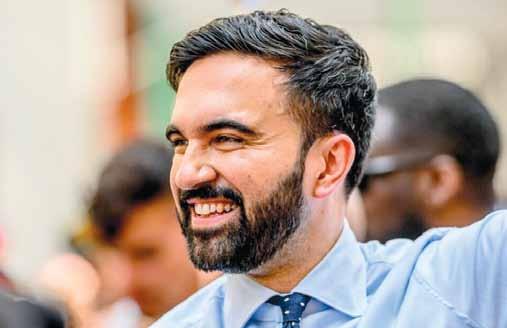
given the key to the city. Racism and Islamophobia will be charged against anyone who stands in their way. Such calling cards are powerful trump cards, even against Trump.
The 1960s was known for its agonizing “white flight” from New York City. People left after far too many electricity blackouts and race riots, rising crime that turned subways and Central Park into deathtraps, striking teachers and sanitation workers — all of which nearly bankrupted the city. Get ready for an even more consequential stampede — possibly unrecoverable, this time.
Jews were among those who abandoned the city in those days — although not because they were unwelcome or singularly vulnerable to dis-
crimination and violence. But today, the movement that Mamdani represents is openly hostile to Jews.
Those keffiyeh-masked hordes who intimidated Jewish students and took to city streets calling for New York’s very own intifada, will now feel even more emboldened knowing that their mayor participated in and endorsed such spectacles — without ever hiding behind a mask! How bad is Mamdani’s resume for Jewish New Yorkers and those who care about Israel? While in college at Bowdoin, he co-founded the chapter of Students for Justice in Palestine. He has long accused Israel of apartheid and genocide. He has declined to condemn

In the 12-day war with Iran that ended last week, 28 Israelis were killed by Iranian missiles, more than 3,000 were injured, and much of the country was repeatedly forced into safe rooms and shelters.
Yet it was the Jews of Britain who Israeli Diaspora Minister Amichai Chikli said were in such danger that they should leave the country and immigrate to Israel.
Chikli accused the Labour Government in the United Kingdom of fueling antisemitism and claimed that its voter base consisted of “Hamas sympathizers.” He told the Daily Mail: “Without a dramatic change of course by Britain’s political leadership, I see no future for Jewish life in England.”
Jews are being subjected to a tsunami of antisemitism throughout the countries of the West. Chikli singled out Britain because it is considered the worst of them all.
That’s because what can only be described as
People who drape themselves in the keffiyeh and mindlessly parrot Hamas propaganda are going wild for Mamdani.
the deranged belief that Israel is the epicenter of global evil has now become a default narrative across Britain’s political and cultural establishment.
The Co-op, a grocery store chain, is banning Israeli produce from its stores. Films, books and other expressions of Jewish culture are being blocked and erased from public space. At this week’s annual conference of the doctors’ trade union, the British Medical Association, no fewer than 43 motions were put forward to denounce the Jewish state over the war in Gaza.
Although this lunacy stretches across a liberal-dominated society, the energy behind it comes from Islamists. This Judeocidal alliance has been given traction in the West by left-wing governments that subscribe to the false and libelous narrative about Israel and refuse even to criticize the Islamic world.
Left-wingers and Islamists marching together in support of “Palestine” — and now the Islamic regime of Iran — make common cause over the destruction of the West and hatred of Israel and the Jews.
Britain’s prime minister, Sir Keir Starmer, is disgracefully riding this tiger. Under pressure from an increasingly powerful Muslim political bloc and with the hard left in his own party always one round-robin away from deposing him, he refused to back either Israel’s or America’s attack on Iran and called instead for “de-escalation.”
His new decision to ban Palestine Action as a terrorist group inadvertently demonstrates the political paralysis that arises from this unprincipled position. The last straw in this group’s “long history of unacceptable criminal damage” came when it broke into RAF Brize Norton, the military airfield in Oxfordshire, and damaged two

military aircraft.
Government officials are now investigating the possibility that Palestine Action is funded by Tehran. Yet around 11 of Starmer’s own members of parliament have supported this terrorist group.
Now America is facing a similar nightmare in the shape of Zohran Mamdani, whose victory over former New York governor Andrew Cuomo in the Democratic Party primary last week puts him in pole position to become mayor of New York. This spells a potential catastrophe for the iconic citadel of American cultural and financial power, and a security disaster for the city’s Jew-
ish community, the largest outside Israel. Mamdani is an extreme leftist who four years ago tweeted: “Queer liberation means defund the police.” In his campaign, he ran on taxing the rich, government-run grocery stores, free bus travel and a freeze on rent. Such policies are unworkable but offer New Yorkers what many want to hear — a program of left-wing, anti-capitalist populism.
He also has a deep hatred of Israel. He supports a boycott of the Jewish state; he has refused to condemn the Hamas-led atrocities in Israel on Oct. 7, 2023; and he has sanitized the slogan “Globalize the intifada,” which is a call to murder Jews around the world.

Ilived and worked in New York while a newlywed, law-school student and young attorney from 1970 to 1981.
I have seen the city at its worst: “Adult bookstores” dotting Times Square, graffiti-covered subway cars with broken seats, panhandlers on every corner and squeegee men at every intersection.
And I’ve seen the city at its best, too: Construction projects changing the face of the City from the World Trade Center to the reconstruction of the “old” Yankee Stadium, streets getting cleaner, and a city climbing out of its financial doldrums.
Now I sit at a distance from New York, but what happens there affects even those of us who live as close as New Jersey and as far away as Israel. Today, the city stands at a crossroads, facing complex challenges that demand visionary and unifying political leadership. As the mayoral race heats up, voters must scrutinize each candidate’s platform and judgment.
In the case of Zohran Mamdani, the apparent winner of last week’s Democratic Party primary, a close examination reveals a pattern of
A mayor must be a unifying force, ensuring that everyone feels secure and represented.
rhetoric and positions that would not only be detrimental to the city’s overall well-being but also deepen divisions and raise serious alarms within its vibrant Jewish community.
His policy proposals, while appealing to some segments of the electorate with promises of rent freezes (a death knell for the real estate market) and free public transit, raise significant questions about fiscal responsibility and the city’s economic future. All five boroughs face substantial budgetary pressures, and a platform predicated on vastly expanded public spending without a clear, sustainable funding mechanism could lead to financial instability and jeopardize essential services for all New Yorkers.
Moreover, Mamdani’s approach to public safety, while advocating for community-based solutions, has been criticized by those who believe it would undermine the NYPD and make the city less secure at a time when residents are already grappling with rising crime concerns.
Yet it is his repeated engagement with, and at times defense of, rhetoric widely condemned as antisemitic that presents the most profound and unsettling concern, particularly for New York City’s Jewish population, the largest outside of Israel. His refusal to unequivocally condemn controversial phrases like “Globalize the intifada” remains deeply troubling.
The term “intifada” is inextricably linked to periods of intense violence and terror against Israelis, including numerous suicide bombings and civilian casualties.
To equivocate on such a phrase or to attempt to reframe it as merely meaning “struggle” while simultaneously evoking the Holocaust’s Warsaw Ghetto Uprising, as Mamdani has, is not just tone-deaf. It is profoundly offensive and even dangerous.
Comparing the Warsaw Ghetto Uprising and the term “Globalize the Intifada” underscores the egregious nature of Mamdani’s attempt to

sanitize a term associated with violence against Jews. This isn’t merely a matter of semantics; it speaks to a fundamental lack of understanding or disregard for the lived experience and historical trauma of the Jewish community. When a mayoral candidate appears to legitimize or minimize calls that many Jews perceive as incitements to violence, it fosters an atmosphere of fear and insecurity.
His consistent, vocal criticism of Israel, identifying as an anti-Zionist and reportedly declining to sign resolutions commemorating the Holocaust, further alienates a significant portion of New York’s diverse Jewish community. While criticism of Israeli government policies is a legitimate aspect of political discourse, his consistent antagonism, coupled with associating with groups that have made anti-Israel activism a core plank of their platforms, suggests an ideol-
ogy that goes beyond policy disagreements.
Many Jewish New Yorkers view anti-Zionism as a form of antisemitism, given that it often denies the Jewish people’s right to self-determination in their ancestral homeland.
New York City prides itself on its diversity and its ability to be a safe haven for all communities. A mayor must be a unifying force — someone who can bridge divides and ensure that all residents feel secure and represented. Mamdani’s past statements and perceived allegiances, particularly regarding issues that deeply impact the Jewish community, raise serious doubts about his capacity to fulfill this crucial role. His candidacy risks exacerbating existing tensions and creating an environment where a significant portion of the city’s population feels
page 8

Twenty-seven days ago, I thought I was going on a business trip to Europe, charting a course from Moldova to Ukraine, and then to Berlin and Paris. Until I just arrived back home in Israel, I was one of 60,000 Israelis stranded overseas.
I was in Paris when the new phase of the war started on June 13. I just finished a factfinding trip exploring new Jewish vulnerabilities arising from increased antisemitism and violent anti-Israel activity.
I was a husband and father far from home when Israel’s attack on Iran’s nuclear capabilities came to fruition. My wife and sons began their almost daily race to our shelter to take cover from Iranian rockets devastating central Israel. I sat in a hotel room praying for their safety with each salvo, constantly monitoring the news and my Home Front Command app to see where the rockets had fallen.
Among the Israelis I got to know waiting on airline information lines and in Jewish community centers, there was a constant, aching concern for loved ones. In yet another ironic twist of Jewish fate, we may have been the only people on earth who clamored to return
We have survived because we always turn to each other for mutual care.
to a war zone, eager to be ensconced in danger, if it meant we could embrace those we left behind.
There is also the reality we face overseas, especially in Europe. I knew that antisemitism was alive and well, and had spiked since the Hamas attack on Israel almost two years ago. I knew from my own interactions with Jewish communities in Europe that it was a top concern, emphasized further in the survey of European Jewish leaders that my organization, the American Jewish Joint Distribution Committee (JDC), issued last year.
What I had not experienced was the particularly aggressive anti-Israel sentiment that such hate has fomented.
There were wild protests in the streets against Israeli actions in Gaza and our defensive measures against Iran. In Berlin, I saw screaming crowds calling for the end of Israel. In Athens, an Israeli was attacked just for speaking Hebrew. As a stranded Israeli colleague of mine was exiting a taxi in Berlin, she got the finger from a driver who deduced her origins.
Added to all of this was a constant concern about terror attacks on Israeli or Jewish community sites. We responded in kind — when I was in a public space and on the phone with my wife and kids, I spoke in English, which I never do. I was more attentive to my surroundings when I scrolled Israeli websites on my phone in public spaces. I never told waiters or cashiers where I was from. Many Israelis were similarly concerned, advising each other which areas of various cities to avoid and sometimes placing their Jewish stars, amulets with Hebrew writing or hostage dog tags under their shirts.
To be clear: We were not hiding, but exercising the wise caution our government and local Jewish community security groups advised us
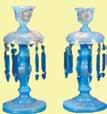
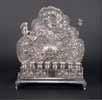



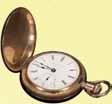

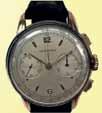

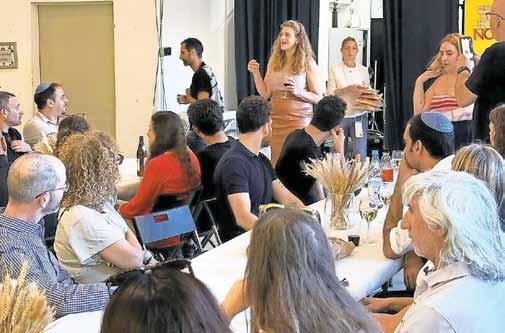
to take at times of heightened tensions. We were also doing something else very typical of our people during times of acute crisis — we were taking care of each other when we need it most.
One of the underreported stories of this war was how hardy Israelis in Europe and tough, thriving European Jewish communities banded together to aid the most vulnerable Israelis waiting to return home.
My organization swung into action immediately, building off post-Oct. 7 efforts to support Israelis living overseas. What was clear from our initial assessment was that many stranded Israelis could navigate the situation on their own, with the support of family, friends and their own resourcefulness and initiative. Indeed, there are many stories about their bold efforts to return to Israel on boats via the Mediterranean and over land crossings through Egypt and Jordan.
However, it was also clear that there were Israelis who would need assistance, among them the elderly and people with disabilities, families with young children, people with urgent medical issues, people suffering trauma and those in extreme need of social support like food and housing. So we deployed a three-pronged effort, in partnership with local Jewish communities, and in special efforts by Israeli-led groups, to meet the moment.
First, we started to support a situation room for stranded Israelis run by the Israeli Communities of Europe, a Berlin-based organization focused on the needs of Israelis in Europe. Many Israelis do not speak local languages or have connections in the cities they are currently residing. The situation room became a source of information and coordination to address many of their needs.
I transferred to Berlin to assist with these efforts given my experience as part of JDC’s emergency response team for the crisis in Ukraine. Together with two other JDC colleagues who also have relevant experience, we arrived in Berlin and started to work with the Israeli Communities of Europe’s team. We met a group of dedicated and committed individuals who already reached scores of Israelis, mainly through WhatsApp groups.
Drawing from our ongoing experience deploying responses to the war in Israel and conflict in Ukraine, which have been generously supported by the Jewish Federations, we focused on strengthening these efforts to expand the reach, effectiveness and impact of the situation room. It currently reaches thousands of people in 13 countries.
Among the people we have assisted were a cancer patient seeking expedited return to Israel; a pregnant woman looking for a reliable, Hebrew-speaking doctor; and a group of young
families desperate to find a place for a play dates (and to give parents a much-deserved break from their waiting game).
Second, we are providing program guidance and funding for local Jewish communities aiding Israelis waiting to return to Israel. We are currently working with communities in France, Italy, Netherlands, Romania, Serbia and Bulgaria. In Amsterdam, we are supporting a central helpdesk to manage requests for food, accommodation, medical care and emotional support together with Maccabi NL, the Israeli Embassy, the Chabad-Lubavitch movement and the local Jewish social-service provider. Together with the Jewish community in Sofia, we are supporting a group of deaf Israelis, stranded after a conference, requiring food and housing.
Lastly, we are supporting Israeli-led services and programs: in partnership with the Israeli Communities of Europe, we are supporting children’s and family activities, workspaces for those who are working remotely, and Shabbat dinners, which have become a major gathering point for Israelis wanting to partake in a tradition from home, whether they are secular or observant.
At one of these dinners in Berlin, I met a middle-aged Israeli woman named Talia who was on a roots trip in Germany with her 80-plus year-old mother, Esther, and her daughter when their return flight was canceled. Esther is too frail to be dragged around Europe to find a city with direct flights back to Israel. So they were patiently waiting it out until the best option becomes available, turning to their fellow Israelis and the local Jewish community for comfort and care.
In spending time with this resilient trio, who laughed together and hugged each other, and even offered words of support to strangers between the blessings and heaps of humus, rice and roasted chicken, I knew we should remain hopeful despite many challenges.
Born in Germany, Esther reminded me that we have survived so much as a people because we always turn to each other for mutual care and come out stronger on the other side. Waiting our turn in line to get home — not a strong suit for Israelis — would be the least painful of all.
Now that I am home and have celebrated my first Shabbat this weekend with my family in almost a month, I hold Esther’s strength and resolve close to me. Her spirit — and the spirit of all those who helped others in need over these last few weeks — is what will help the Jewish world and Israel face whatever comes next.
Amos Lev-Ran, of Tel Aviv, is director of external affairs for JDC’s operations in the former Soviet Union, Europe, Africa and Asia.


By Carin M. Smilk, JNS
Haitham Amal wasn’t always propelled toward science. He wanted to study international relations. Then he took physics and chemistry in high school, and “fell in love with science,” he told JNS.
Amal, 39, a Christian Israeli, grew up in Haifa with three siblings in an educated family, with one uncle a doctor and his sister a pharmacist, he said.
In the Hebrew University of Jerusalem’s School of Pharmacy, he heads the Amal Lab of Neuromics, Cell Signaling and Translational Medicine, focusing his research on autism, Alzheimer’s disease, and brain cancers.
Appreciating the amalgam of subjects he liked most in his early years, Amal calls himself “an international scientist.”
He spoke of all this to an audience of 100 on June 4 at the Museum of the American Revolution in Philadelphia, where he was awarded a research chair in brain science from HU, funded by the Satell Family Foundation.
Amal relationship to Ed Satell goes back many years. Satell, who is approaching 90, a quiet but extensive philanthropist for more than 50 years, hosted the event with his wife, Cyma.
Amal spoke of encouraging advances made in autism and Alzheimer’s research. He has shown a link between nitric oxide, which is produced in human cells, and ASD; the results were widely circulated after being published in Advanced Science in May 2023.

“Important to note is that we still don’t know if [nitric oxide] leads to ASD as a first source,” said Amal in his findings. “We now know that [nitric oxide] is a major pathological factor in ASD. We also know that reducing [nitric oxide] levels reduce ASD phenotypes.”
As part of a new study, Amal’s team conducted a series of experiments using cellular and mouse models of ASD, as well as biological samples from patients, to further characterize the potential role of nitric oxide in the development of autism, according to the published paper.
The key takeaways, Amal said last week at the event, are a blood test to diagnose biomarkers of autism (clinical testing is currently the only method used) and the development of a drug — a syrup to be taken orally — that works to shut down an enzyme that produces nitric acid and thus reduces core symptoms.
He also pointed out environmental factors linked to autism, such as air pollution, chemical exposures and food toxins. To that end, Amal is part of a US consortium grant awarded $17 million to investigate reasons for reported increases in autism, while focusing on how pollutants may be a key factor in both autism and Alzheimer’s.
Others who addressed the crowd included businessman Joseph Neubauer, former CEO of Aramark Corp., who noted positive changes in the increasing diversity of faculty at Israeli universities; and Joshua Rednik, CEO of American Friends of the Hebrew University, who mentioned that Amal is the first international recipient of a grant from the Philadelphia Eagles Autism Foundation.
At the end of the program, a question-andanswer period focused on what everyone wants to know: What hope lies on the horizon in terms of cures?
“Hope is in the research … and the funding,” Amal replied. And then he made it a point to add, in the backdrop of a significant revolution two-and-a-half centuries ago, “there are great minds in Israel and America that will lead to a medical revolution.”


Continued from page 2
candidate’s “magic,” his energy and inspiring message of optimism, suggesting that many progressives, frustrated with older Democratic politicians’ lack of effective resistance to Donald Trump’s autocratic agenda, are prepared to take a leap of faith in candidates with more vigor than know-how — even if that means offending and perhaps endangering much of the Jewish community in the city with the largest Jewish population outside of Israel.
the slogan “Globalize the Intifada!” insisting that it has multiple meanings.
I wonder which one he favors.
He’s the first mayoral candidate pledging to boycott Israel. As mayor, he will never visit the Jewish state—largely because he does not recognize it as a lawful nation. When he was an assemblyman, he declined to co-sponsor Holocaust Remembrance Day resolutions.
Mamdani promises to have Israeli Prime Minister Benjamin Netanyahu arrested when he attends the United Nations General Assembly. Such are the wishes of the International Criminal Court, a body that has no jurisdiction over Israel or the United States, but Mamdani will oblige them anyway.
So far in 2025, antisemitism in the city that Mamdani would lead is up 18 percent, and well over 200 percent since the start of the October 7 Gaza War. His solution: send in “violence interrupters” to assist Jews. Let the actual police protect everyone else.
As a result of all this, and his charismatic and telegenic personality, he’s become an overnight rock star.
The kind of people who drape themselves in the keffiyeh and mindlessly parrot Hamas propaganda about Israel’s supposed “genocide” — young, college-educated progressives and the vacuous narcissists who people the entertainment industry — are going wild for him.
The support by such people for such a man is bizarre. Mamdani isn’t just a Muslim. He is a practicing member of the Islamic Shia Twelver sect, which holds that an apocalypse will bring down to earth the Shia messiah, the Twelfth Imam.
The most prominent member of this sect is Iran’s supreme ruler, Ayatollah Ali Khamenei — the genocidal fanatic whose defining slogan is “Death to America!”
Given Mamdani’s affiliation to such an uncompromising jihadi sect, one does wonder about his pledge to create an “office of LGBTQIA+ Affairs” at City Hall.
Whatever the theological legerdemain behind such contradictions, Mamdani represents the alliance between reactionary Islamism and left-wing progressivism that we have seen on the
marginalized and vulnerable.
For the future of New York, and particularly for the well-being and security of its Jewish community, voters must consider the full implications of electing a mayor whose rhetoric on sensitive issues has consistently caused alarm and offense. Leadership requires not just policy
Zohran Mamdani is an example of “the new antisemtism.” Unlike classic antisemitism that targets Judaism or Jewish people, the new form takes aim at Israel, the Jewish state.
In seeking to distinguish between legitimate criticism of Israel and antisemitism, Natan Sharansky, the most famous of Jewish refuseniks, applies “the 3 D’s”: delegitimization, demonization and double standards, each of which, he says, indicates antisemitism.
Mamdani appears to qualify in all three categories. He has long been an anti-Israel activist, and on the day after the October 7, 2023 barbaric Hamas attack he posted on X: “The path toward a just and lasting peace can only begin by ending
Mamdani is unlikely to change his mind about Israel. His father teaches the evils of “settler colonialism” at Columbia University, serves as advisor to pro-Hamas students, and has compared Israel to the Nazis. His son vowed that as mayor he would not send the NYPD to break up future anti-Israel encampments.
Should he win, Mamdani’s effect on Jewish life in New York City would be incalculable. Jews arrived at Ellis Island like so many of the “huddled masses yearning to be free,” words written on the base of the Statute of Liberty and penned by a female Jewish poet. Generations later, all that earnest yearning resulted in unimaginable social mobility for Jews—arguably the most triumphant of all immigrant success stories in America.
Still breathing free, of course, but Jews should not expect to breathe as comfortably in a Mamdani administration.
Admittedly, his emergence reflects the chaotic times in which we live, with its extreme breakdown in social cohesion and the rule of law.
After all, Americans who identify with Mamdani are actually rooting againsttheir own country — waving Iranian flags, cheering on
streets of Western cities. This has produced the surreal spectacle of liberals marching alongside Islamists who, should circumstances be different, would remove these liberals’ progressive heads from their shoulders.
Ashocking mindset that demonizes and dehumanizes the Jewish targets of extermination has a large and growing following among younger voters. They are the products of an education system that has progressively destroyed their ability to think, fueled by a sulfurous cocktail of resentments over perceived racial, ethnic, sexual and economic marginalization.
Twelver Shi’ism is noted for its encouragement of political activism. Israel may have smashed the Shia axis in the Mideast, but the Islamic revolutionary regime in Tehran has seeded it throughout the West.
Yet those who have drawn attention to Mamdani’s religious background have been denounced for “Islamophobia.” Those accusers are the useful idiots who are facilitating the rise of Islamic extremism in Britain, Europe, and now increasingly, in America. They are also weakening the ability of the West to defend itself against the most dangerous of the Islamist groups waging war on the West: the Iranian regime.
Although Israel and America have won a great victory against that regime, the war against it is far from over. While it remains in place, it still poses a grievous threat to Israel,
ideas but empathy, historical understanding, and an unwavering commitment to the safety and inclusion of all citizens.
Zohran Mamdani’s record, unfortunately, falls short on these critical measures, making him a risky choice for New York City’s top office.
Stephen Flatow is an attorney, president of the Religious Zionists of America-Mizrachi, and the father of Alisa Flatow, who was murdered in an Iranian-sponsored Palestinian terrorist attack in 1995.
Write: Columnist@TheJewishStar.com
the occupation and dismantling apartheid.”
No mention of Hamas for murdering 1,200 men, women and children, and taking 250 people hostage, tortured in tunnels. Instead, the onus is on Israel, labeled an apartheid state, though 20 percent of its citizens are Arabs, including those who serve on the nation’s Supreme Court.
Most recently and tellingly is Mamdani’s refusal to back off of his defense of the call for “global intifada,” which many Jews interpret as an endorsement of violence against Jews anywhere and everywhere. That’s a clear example of double standard and demonization in citing Israel as the only country in the world whose right to exist is continually questioned and chal-
Hamas, wrapping keffiyehs around a statue of George Washington. It is the most extraordinary display of national self-hatred America has ever known.
After Hamas launched its surprise attack, life in the Big Apple, especially for Jews, began to rot. How far has New York City already strayed from its Jewish-American moorings?
One of its most iconic mayors, Fiorello La Guardia, had a Jewish mother and was fluent in Yiddish. Mayors Abe Beam, Ed Koch and Michael Bloomberg added Jewish seasoning of their own. When civil rights activist and presidential aspirant Jesse Jackson derisively referred to New York City as “Hymietown” in 1984, he was roundly condemned — everywhere!
The same word out of Mamdani’s mouth will earn him a Nobel Peace Prize.
We saw this coming but were too afraid to acknowledge the evolving mission creep of Jewhatred.
During the 2012 Democratic Convention, there was a floor fight to remove language in its platform proclaiming Jerusalem as the capital of Israel. The Jewish women who co-founded the Women’s March in 2016 were benched when they were informed that “Jews financed the
America and the West.
In Israel, there’s concern that President Donald Trump, after his great act of boldness and tactical brilliance in destroying Iran’s principal nuclear sites, may nevertheless think he has thus destroyed Iran’s ability to continue its genocidal war.
This belief may not be accurate. There are concerns that supposedly 400 kilograms of enriched uranium may have been transported to other secret sites before the US attack.
The Tehran regime has an unrivaled record of deceit and manipulation with which it has bamboozled the West for decades and hidden parts of its nuclear program from United Nations inspectors. Trump seems to believe he can now dragoon a greatly weakened Iran into verifiably destroying the remainder of that program. Few others would bank on that.
Aside from the nuclear threat, the regime has long installed thousands of sleeper cells across the West. Britain’s security service, MI5, says Ira-
lenged. (Does anyone speak of being “pro-Italy, pro-Portugal or any other country?)
In the end, I agree with Masha Gessen’s statement that “the story of antisemitism needs to be rewritten.” But I come to the exact opposite of her conclusion. The point isn’t to distinguish between classic antisemites and those who delegitimize and demonize only Israel among all the nations — it’s to, davka, put them in the same category. And call them out.
Gary Rosenblatt, a Pulitzer Prize finalist, was editor and publisher of the Jewish Week from 1993 to 2019. Follow him by subscribing (free or paid) to his Substack column, “Between The Lines,” at garyrosenblatt.substack.com
slave trade.” Black Lives Matter took an equal interest in spreading the message that Jewish lives don’t matter. Hillels on college campuses have been denied entry in progressive circles unless they denounce Israel.
Those holding signs reading “Jews for Mamdani” and “Queers for Palestine” should enter into a same-moron marriage.
Meanwhile, Jewish Democrats continue their insufferable plight as political masochists. Unable or unwilling to discern friend from foe. Hopelessly devoted to a party that demonstrates, time and again, how much it despises Jews and Israel. It’s starting to resemble an abusive relationship, devoid of self-respect, like showing up to a party, uninvited.
That winning slogan of the 1970s, “I Love New York,” adopted to revive the city’s fortunes, won’t be chanted by Mamdani’s minions. Such affections are no longer felt — especially not for Jews.
Thane Rosenbaum is Distinguished University Professor at Touro University. His latest book is “Beyond Proportionality: Israel’s Just War in Gaza.”
First published in JewishJournal.com.
Write: Columnist@TheJewishStar.com
nian terrorism is now a principal threat to Britain. And along with Hamas operatives, Iranian groups have been instrumental in organizing the menacing pro-jihadi demonstrations on Western streets.
Israel is still locked into a terrible war in Gaza with Iran’s proxy, Hamas. Hostages remain incarcerated in the Strip, both living and dead. The threat posed by Iran itself remains unfinished business.
Nevertheless, Jerusalem has inflicted astonishing damage on its mortal enemy. It’s achieved this by recognizing the threat and using immense courage, brilliance and boldness to fight it. So did Trump.
By contrast, the West’s elites are paralyzed in the face of the same threat because they remain gripped by their drive toward cultural suicide. Israel, despite or perhaps because of its embattled state, is far safer. That’s why Chikli’s warning to Diaspora Jews is on the button.
Write: Columnist@TheJewishStar.com

Student chapters of the anti-Zionist parties Hadash and Balad marked Nakba Day with demonstrations at Tel Aviv University, the Hebrew University of Jerusalem and the University of Haifa.
These protests, staged between May 12 and 15, were recycled performances of the flawed Nakba narrative, complete with accusations of genocide and ethnic cleansing directed at the State of Israel.
At Ben-Gurion University, the event escalated into a disruptive occupation of campus grounds, where demonstrators blocked access to the president’s office and demanded a campus-wide strike “until the war ends.”
At the Hebrew University, extremist student organizers invited a former HU professor, Nadera Shalhoub-Kevorkian, to speak. Shalhoub–Kevorkian was suspended in March 2024 for publicly declaring, “The time has come to abolish Zionism, it cannot continue,” and “[Israel] is a necro-political regime that can survive only on the erasure of Palestinians. They will use any lie. They started with babies. They continued with rape … We stopped believing them and I hope the world will stop believing them.”
Though she recanted some of these statements to get her job back, there is little doubt that they constitute her true beliefs and were the specific reason why she was an invited speaker in the first place.
Instead of mourning what they claim is “tragedy of the Nakba,” activists at HU used
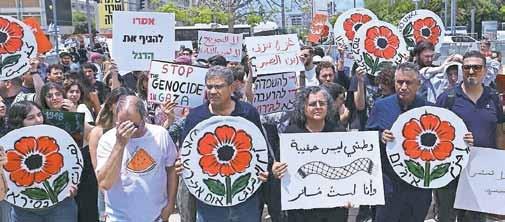
their platform to downplay Hamas’ massacre.
It was more of the same at Tel Aviv University. Speeches and signs repeatedly accused Israel of committing genocide while ignoring all evidence that suggested otherwise.
This blood libel has been promoted for years, long before the current war — which raises the question: What are they commemorating when they invoke the “Nakba?”
“Nakba” means “catastrophe” in Arabic. It is commonly understood as a reference to the Arab refugee crisis that followed the failed 1948 war of annihilation waged by a coalition of Arab states against the Jews of Israel.
Not only does the Nakba narrative hinge on the false charge that Israel’s Jews deliberately ethnically cleansed Arabs, but each yearly commemoration reveals its real aim: to legitimize calls for Israel’s destruction and to render Jews stateless refugees once again — or worse.
There are two issues that make this topic
especially interesting: Why is this happening in Israel? And what is the mainstream view of Palestinians toward the Arab-Israeli minority, whose existence as Israeli citizens negates their central Nakba lie?
When you hear how Hamas or the Palestinians in Gaza and Judea and Samaria perceive Israeli Arabs, a deep disconnect is revealed. While Nakba commemorations in Israel are often framed as acts of solidarity between Palestinians and Israeli-Arabs, the relationship between the two groups is far more complicated.
Many Palestinians in the territories view Israeli-Arabs with suspicion and contempt, often labeling them as collaborators or traitors simply for holding Israeli citizenship. This was evident in testimonies from Israeli-Arab hostages and victims of the Oct. 7 massacre, as well as in polls showing a stark divide: Most Palestinians deny that Hamas committed war crimes while a majority of
Israeli-Arabs identify with the Israeli state. At the same time, many Israeli-Arabs feel caught between two identities — expressing empathy for Palestinian suffering while living as citizens in a country often vilified by those they seek to support. It seems that since Nakba Day events are primarily organized by Arab students and student groups, what appears to be irrational activism against their own country may actually be a form of overcompensation, an attempt to reconcile conflicting loyalties and identities.
During the Oct. 7 massacre, 24 Israeli Arabs were murdered and 8 were kidnapped by Hamas, and according to surveys released after the massacre, about two-thirds of Israeli Arabs see themselves as part of the State of Israel. In contrast, according to a Palestinian survey published in May 2025, 87% of the Palestinian population in Gaza and Judea and Samaria think that Hamas did not commit war crimes on Oct. 7, 2023.
In fact, the majority of the Palestinian public thinks that the “solution to the conflict” is simply to continue the violent confrontation until Israel surrenders. This suggests that Palestinian nationalists have not relinquished the original annihilationist plan targeting the indigenous Jewish population of Israel.
Nakba Day protests perceive the very establishment of the State of Israel as a disaster and are far from addressing Palestinian suffering. Continuing to cling to one-sided narratives, disconnected from historical and factual contexts, not only does not bring the solution closer but deepens the rift, especially when it comes to academic campuses that are supposed to be a space for intellectual discourse. Tom Yohay is the manager of CAMERA on Campus Israel. Write: Columnist@TheJewishStar.com

At The Jewish Star, selling advertising for the newspaper is just part of the job.
Our staff’s toolkit includes an exceptionally broad range of useful products (including both religious and secular publications and websites; digital, email, radio and social media marketing; in-person events; direct mail; commercial printing, and more) — whatever it takes to build business and raise revenue for our commercial and non-profit partners.
Employees are trained by the best in the business, in a supportive, collegial and kosher environment.
These F/T positions (P/T schedules may be arranged) offer competitive compensation ($40k-$90k) with excellent commission and bonus opportunities, paid holidays (including Jewish holidays), time off, medical and 401(k).
Kitchen

Can you believe it’s the 4th of July? I hope all of you who are parents of kids in overnight camp, are getting happy letters and that all the kids everywhere are loving their summer activities. If you are a parent who now has the house to yourself, then make this holiday a great event with some adult friendly foods and great summer drinks.
Salmon is a staple for the 4th of July. It all goes back to nature and a story that may be pure mythology. In its natural habitat, salmon begin to spawn around the beginning of July. Simple historical concept — if a food was abundantly available, people ate more of it. There was a time when salmon populated all the New England rivers. Sadly, that time is mostly gone, but not our love for salmon.
The myth says that Abigail Adams served poached salmon with egg sauce, new potatoes and fresh garden peas to John Adams on the very first July 4th in 1776. Apparently, there are lots of holes in that story, but people like to cling to mythology. Based on that myth, the 1964 World’s Fair served salmon on July 4th as homage to Abigail Adams. The tradition stuck. While backyard barbecues are often meat based, celebrating the 4th of July with a salmon barbecue is delicious and, in all honesty, healthier than burgers and hot dogs.
In addition to being delicious, salmon is also pareve which means that you can cap off the dinner with delicious dairy treats for dessert. What could be better than a delicious ice cream treat to cap off the fireworks!
One of my favorite summer treats is an Ice cream soda or a float. I had my first ice cream soda when I was 5. My dad took me to the local Brigham’s for an ice cream cone, but I saw someone sitting at the counter and drinking from this tall glass filled with pink liquid and a huge scoop of ice cream resting on top of the glass. On top of that was a mountain of whipped cream and a cherry on top of all that. I begged my dad to buy me whatever that was and fell in love with the mix of bubbly liquid, ice cream and whipped cream. Though I barely ate half of it, ice cream sodas became my favorite summer treat.
Ice cream sodas and ice cream floats are the brainchild of pharmacist Robert M. Green who invented the concoction for the Philadelphia Exposition in October of 1874. There were cream sodas by then, a concoction of heavy cream, flavored syrup and soda water. But, at the exposition, the pharmacist ran out of cream, so he substituted a scoop of ice cream believing that the frozen scoop would melt into the soda. It didn’t quite do that, but customers clamored for the new treat and hundreds lined up at his window for every day of the Exposition, requesting the new ice cream drink instead of the cream soda drink. Patrons took the story of this new creation home and drug stores all over America began selling what became a summer favorite.
So what are the differences between an ice cream soda and a float? Floats are usually made with soda like Coke or root beer to which a scoop of ice cream is added. An ice cream soda is usually some syrup, cream and soda water or flavored soda with a scoop of ice cream perched

on the rim of the glass. Both are worthy of some attention this summer! If your kids are away, have some fun with adult versions made with deliciously flavored liqueurs.
Summer is SO short, so enjoy and bring back your own memories of your favorite ice cream parlor!
NOTE: I use cream soda for most of these as the neutral vanilla flavor mixes well with most other flavors. You can substitute pareve ice cream or use diet soda and non-fat frozen yogurt to save calories.
• 1/2 oz. vodka
• 1/2 oz. peach liqueur
• 1/2 oz. raspberry liqueur
• Cream soda
• Raspberry sorbet, peach ice cream or vanilla ice cream
Place the ice cream in a tall glass. Pour the vodka and liqueurs over the top. Pour the cream soda over that to fill about 1/2-inch below the rim and mix gently. Garnish with fresh raspberries, maybe a slice of fresh peach, and a twig of mint.
• 1/2 oz. coffee cream liqueur
• 1/2 oz. chocolate cream liqueur
• 1 small scoop chocolate ice cream
• 1 small scoop coffee ice cream
• 1 small scoop vanilla ice cream
• Cream soda
• Chocolate syrup
Drizzle a bit of chocolate syrup against the side of a tall glass and swirl to coat the sides. Place two small scoops of ice cream in the glass. Pour the liqueurs over the ice cream followed by the soda. Stir and top with the remaining scoop perched on the edge of the glass, some whipped cream, and shaved chocolate. Decadent!
• Iced coffee, double strength (decaf is my choice)
• Cream soda
• Your favorite ice cream like coffee fudge, mocha chip, vanilla, Oreo cookies and cream, or simple chocolate, coffee, or vanilla
• Chocolate syrup and whipped cream
Make some double strength iced coffee and chill. Place ice cream in a tall glass and pour See Joni: Sweet ice cream on page 14






































































“Happily, the Government of the that they who live under its protection who dwell in this land continue his own vine and fig tree and there

the United States, which gives to bigotry no sanction, to persecution no assistance, requires only protection should demean themselves as good citizens. … May the children of the stock of Abraham to merit and enjoy the good will of the other inhabitants, while every one shall sit in safety under there shall be none to make him afraid.” From George Washington’s Letter to the Jews of Newport, Aug. 18, 1790
Continued from page 10
half iced coffee and half cream soda over the ice cream. Drizzle with chocolate syrup and garnish with whipped cream.
and
• 1/2 cup half and half
• 4 Tbsp. chocolate syrup (for kids’ version)
• 4 oz. cherry liqueur (for adult version)
• 1 pint cherry chocolate chunk ice cream
• 1 liter black cherry soda
Place 2 to 4 tablespoons of the half and half in each of 3 or 4 tall glasses. Add a tablespoon of chocolate syrup for kids or the liqueur for adults. Mix well. Add a generous scoop of ice cream and pour the cherry soda over. Top with whipped cream and a cherry. Mix gently. Makes 3 to 4 ice cream sodas.
• 1 lb. strawberries
• 1 tsp. pure vanilla extract
• 3 Tbsp. sugar
• 1 pint strawberry ice cream
• 1 bottle strawberry soda
• Whipped cream
Wash, hull and slice the berries. Add the vanilla and sugar and stir. Set aside for 30 minutes. Remove 1 cup of berries and add the rest to a food processor.
Pulse until smooth. Place in a fine mesh strainer and strain over a large bowl, pressing down with the back of a spoon. Discard any solids. Pour 1/3 cup of the sauce in each of the glasses. Add the ice cream and top with strawberry soda. Garnish with whipped cream and sliced berries. Makes 4 to 6 floats.
• 1 pint fresh raspberries
• 1/2 cup sugar
• Juice from one lime
• Chilled raspberry lime, or lemon lime seltzer, or raspberry soda
• Medium cream, half and half or almond milk for a pareve treat
• Raspberry sorbet
• Lime sorbet or sherbet
• Slices of lime, whipped cream for garnish
Mash the berries lightly with a fork and add the sugar. Mix well, cover and refrigerate overnight.
When ready to use, pour the berry mixture into a fine mesh strainer over a bowl. Press on the solids to extract all the juice. Discard the solids. Squeeze the juice from one lime into the raspberry sauce and mix well. For extra flavor, you can add some lime zest.
Add 3 to 4 tablespoons of the syrup to a tall glass. Add 3 tablespoons of the cream and mix while pouring in the chilled soda or seltzer. Fill the glass half full, add the sorbet and/or sherbet and add more soda. Garnish with a slice of lime or some whipped cream. Makes 3 to 4.



Jewish Star Torah columnists: •Rabbi Avi Billet of Anshei Chesed, Boynton Beach, FL, mohel and Five Towns native •Rabbi Binny Freedman, rosh yeshiva of Orayta, Jerusalem •Dr. Alan A. Mazurek, former ZOA chair, is a retired neurologist, living in Great Neck, Jerusalem and Florida.
Contributing writers: •Rabbi Sir Jonathan Sacks zt”l, former chief rabbi of United Hebrew Congregations of British Commonwealth •Rabbi Dr. Tzvi Hersh Weinreb, OU executive VP emeritus •Rabbi Yossy Goldman, president of the South African Rabbinical Association.
Contact our columnists at: Columnist@TheJewishStar.com
Fri July 4 / 8 Tamuz
Chukat
Five Towns candles: 8:11 • Havdalah: 9:19
Scarsdale candles: 8:12 • Havdalah: 9:21
Fri July 11 / 15 Tamuz
Balak
Five Towns candles: 8:08 • Havdalah: 9:17
Scarsdale candles: 8:10 • Havdalah: 9:18
Sun July 13 / 17 Tamuz Fast of Tamuz
Fri July 18 / 22 Tamuz
Pinchas Shabbat Mevarchim
Five Towns candles: 8:04 • Havdalah: 9:13
Scarsdale candles: 8:06 • Havdalah: 9:12
Five Towns Candlelighting: From the White Shul, Far Rockaway, NY
Scarsdale Candlelighting: From the Young Israel of Scarsdale, Scarsdale, NY
rabbi Sir JonaThan
SaCkS zt”l

It is a scene that still has the power to shock and disturb. The people complain. There is no water. It is an old complaint and a predictable one. That is what happens in a desert. Moses should have been able to handle it with ease. He has been through far tougher challenges in his time. Yet suddenly at Mei Meriva (“the waters of contention”), he exploded into vituperative anger:
“Listen, you rebels, shall we bring you water out of this rock?” Moses raised his hand and struck the rock twice with his staff. Num. 20:10–11
In past essays I have argued that Moses did not sin. It was simply that he was the right leader for the generation that left Egypt but not the right leader for their children who would cross the Jordan and engage in conquering a land and building a society. The fact that he was not permitted to lead the next generation was not a failure but an inevitability.
As a group of slaves facing freedom, a new relationship with G-d, and a difficult journey, both physically and spiritually, the Children of Israel needed a strong leader capable of contending with them and with G-d. But as builders of a new society, they needed a leader who would not do the work for them but who would instead inspire them to do it for themselves.
The face of Moses was like the sun, the face of Joshua was like the moon (Bava Batra 75a). The difference is that sunlight is so strong it leaves no work for a candle to do, whereas a candle can illuminate when the only other source of light is the moon. Joshua empowered his generation more than a figure as strong as Moses would have done.
But there is another question altogether about the episode we read of this week. What made this trial different? Why did Moses momentarily lose control? Why then? Why there? He had faced just this challenge
Miriam was more than a sister to Moses. She followed the wicker basket as it drifted down the Nile.
before.
The Torah mentions two previous episodes. One took place at Mara, almost immediately after the division of the Red Sea. The people found water but it was bitter. Moses prayed to G-d, G-d told him how to sweeten the water, and the episode passed. The second episode occurred at Rephidim (Ex. 17:1–7). This time there was no water at all.
Moses rebuked the people: “Why are you quarrelling with me? Are you trying to test G-d?” He then turned to G-d and said, “What am I to do with this people? Before long they will stone me!”
G-d told him to go to a rock at Horeb, take his staff, and hit the rock. Moses did so, and water came out. There was drama, tension, but nothing like the emotional distress evident in this week’s parsha of Chukat. Surely Moses, by now almost forty years older, with a generation of experience behind him, should have coped with this challenge without drama. He had been there before.
The text gives us a clue, but in so understated a way that we can easily miss it. The chapter begins thus: “In the first month, the whole Israelite community arrived at the desert of Zin, and they stayed at Kadesh. There Miriam died and was buried. Now there was no water for the community.” (Num. 20:1–2).
Many commentators see the connection between this and what follows in terms of the sudden loss of water after the death of Miriam. Tradition tells of a miraculous well that accompanied the Israelites during Miriam’s lifetime in her merit. When she died, the water ceased.
There is, though, another way of reading the connection. Moses lost control because his sister Miriam had just died. He was in mourning for his eldest sibling. It is hard to lose a parent, but in some ways it is even harder to lose a brother or sister. They are your generation. You feel the Angel of Death come suddenly close. You face your own mortality.
Miriam was more than a sister to Moses. She was the one, while still a child, to follow the course of the wicker basket holding her baby brother as it drifted down the Nile. She had the courage and ingenuity to approach Pharaoh’s daughter and suggest that she employ a Hebrew nurse for the child, thus ensuring that Moses would grow up knowing his family, his people, and his identity.
In a truly remarkable passage, the Sages said that Miriam persuaded her father Amram, the leading scholar of his generation, to annul his decree that Hebrew husbands should divorce their wives and have no more children because there was a 50 per cent chance that any child born would be killed.
“Your decree,” said Miriam, “is worse than Pharaoh’s. He only decreed against the males,

yours applies to females also. He intends to rob children of life in this world; you would deny them even life in the World to Come.”
Amram admitted her superior logic. Husbands and wives were reunited. Yocheved became pregnant and Moses was born. Note that this Midrash, told by the Sages, unambiguously implies that a six-year-old girl had more faith and wisdom than the leading rabbi of the generation!
Moses surely knew what he owed his elder sister. According to the Midrash, without her he would not have been born. According to the plain sense of the text, he would not have grown up knowing who his true parents were and to which people he belonged.
Though they had been separated during his years of exile in Midian, once he returned, Miriam had accompanied him throughout his mission. She had led the women in song at the Red Sea. The one episode that seems to cast her in a negative light – when she “began to talk against Moses because of his Cushite wife” (Num. 12:1), for which she was punished with leprosy — was interpreted more positively by the Sages.
They said she was critical of Moses for breaking off marital relations with his wife Tzipporah. He had done so because he needed to be in a state of readiness for Divine communication at any time. Miriam felt Tzipporah’s plight and sense of abandonment. Besides which, she and Aaron had also received Divine communication but they had not been commanded to be celibate.
She may have been wrong, suggested the Sages, but not maliciously so. She spoke not out of jealousy of her brother but out of sympathy for her sister-in-law.
So it was not simply the Israelites’ demand for water that led Moses to lose control of his emotions, but rather his own deep grief. The Israelites may have lost their water, but Moses had lost his sister, who had watched over him as a child, guided his development, supported him throughout the years, and helped him carry the burden of leadership in her role as leader of the women. It is a moment that reminds us of words from the book of Judges said by Israel’s chief of staff, Barak, to its judge-and-leader Deborah: “If you go with me, I will go; but if you do not go with me, I cannot go” (Judges 4:8). The relationship between Barak and Deborah was much less close than that between Moses and Miriam, yet Barak acknowledged his dependence on a wise and courageous woman. Can Moses have felt less?
Bereavement leaves us deeply vulnerable. In the midst of loss we can find it hard to control our emotions. We make mistakes. We act rashly. We suffer from a momentary lack of judgement. These are common symptoms even for ordinary humans like us. In Moses’ case, however, there was an additional factor. He was a prophet, and grief can occlude or eclipse the prophetic spirit. Maimonides answers the well-known question as to why Jacob, a prophet, did not know that his son Joseph was still alive, with the simplest possible answer: grief banishes prophecy. For twenty-two years, mourning his missing son, Jacob could not receive the Divine word. Moses, the greatest of all the prophets, remained in touch with G-d. It was G-d, after all, who told him to “speak to the rock.” But somehow the message did not penetrate his consciousness fully. That was the effect of grief.
See Sacks on page 22
Rabbi DR. tzvi

What’s worse? Death by the plague? By the sword? Starving to death? Or being sentenced to captivity? What a horrible set of choices, and what a bizarre question to ask!
But our Sages asked precisely this question in response to a prophecy of Jeremiah that he addressed to a sinful people. A frightening prophecy indeed:
The L-rd said to me, “Even if Moses and Sam-
uel were to intercede with me, I would not be won over to that people. Dismiss them from my presence, and let them go forth! And if they ask you, ‘To what shall we go forth?’ answer them, ‘Thus said the L-rd:
•‘Those destined for the plague, to the plague;
•‘Those destined for the sword, to the sword;
•‘Those destined for famine, to famine;
•‘Those destined for captivity, to captivity’.”
(Jeremiah15:2)
There is no question about it. The Jewish historical experience is rife with all four of the above catastrophes. Jeremiah’s prophecy came true more than just a few times in our history.
Is it an idle question to ask which of the four is the worst? Are they not all terrible?
But the question is asked in an astounding
passage in the Talmud (Bava Batra 8b), in connection with the great mitzvah of redeeming captives. Rabbi Yochanan, one of the greatest teachers in the Talmud, refers to the above passage in Jeremiah and says: “Each subsequent calamity in this verse is harsher than the one preceding it!”
For him, the sword is a worse fate than the plague for the body is disfigured. Hunger is worse than death by the sword because of the immense suffering involved in the former.
Captivity, Rabbi Yochanan asserts, is worse than all of the other three, because all of them are included in it. As Rashi explains, “The captive is totally at the mercy of his captor, who may slay him or starve him to death as he chooses.”
Our people, who have endured so many forms of calamity, have known captivity firsthand and frequently, particularly since October 7. Our national consciousness has always known how painful captivity is and how much effort we must invest in freeing captives and in appreciating the joys of freedom.
June 25 (Parshat Korach, just a week ago) marked exactly 19 years since one of our brethren was taken captive by sworn and fanatical enemies of the Jewish people. I refer, of course, to Gilad Shalit, the young Israeli soldier who was held hostage under miserable circumstances by Hamas for five years before his release in 2011.
It is important that each of us never forget

We are living in a time of hester panim, when Hashem’s face is hidden. In such times, there are multiple perspectives and messages.
During Operation Rising Lion, the world witnessed remarkable miracles. Scientists and military leaders were eliminated. Bunker-buster bombs were dropped. Years of planning went into this attack, with Mossad
agents collecting information slowly and carefully. The success of covert intelligence and the protection of innocent lives are not accidents. These are miracles from Hashem. And yet, how can we say Hallel? We don’t celebrate without hesitation. The war in Gaza continues. We still have 50 hostages, may they be released immediately. We hear of precious Chayalim being killed. Over 9,000 Israelis remain displaced, their homes destroyed. The international media now claims that nothing even happened in Iran, that we were not successful. It is confusing to read and hear such reports.
So what is there to think? Hallel? Avinu Malkeinu?
It is miraculous, and it is heartbreaking. It is triumph, and it is trauma. We are living through a time of mixed messages.
And in this moment, Parshas Chukat speaks to us with deep relevance.
This parsha must be understood in light of one overwhelming reality: Hashem does not speak to Am Yisrael for 38-1/2 years. After the sin of the spies, the decree is sealed. The people will wander. But perhaps even more painful than the wandering is the silence. No communication from G-d. Not one prophecy. Not one directive. Imagine living through such a time. You’re in the Midbar. The journey stretches endlessly. You no longer feel G-d’s presence. There is
no new message. No spiritual spark. What begins to emerge in such a vacuum? Questions. Confusion. Divergent interpretations.
And it is precisely in this descent into silence that Hashem gives them one final parsha before the long quiet: the mitzvah of the Parah Adumah. Not a prophecy. Not a promise. But a chok, a statute that defies logic. A red cow whose ashes purify the impure and simultaneously render the pure impure. A paradox at the heart of the Torah. This is not just a ritual. It is a response.
Through the Parah Adumah, Hashem gifts Klal Yisrael a philosophy for surviving hester

Here is all the Torah has to say about Miriam, whose death was comparable to Moshe’s (Baba Batra 17a), Aharon’s, and even Avraham’s, on account of all them utilizing the word sham (there):
They came to the Tzin Desert, and the people stopped in Kadesh. It was there that Miriam died and she was buried there.
The Talmud (Moed Katan 28a) tells us Miriam’s death is juxtaposed to the Parah Adumah
(Red Heifer) of Chapter 19 because just as the Parah Adumah brought atonement, so does the death of the righteous bring atonement.
Toldot Yitzchak notes that the Parah Adumah is not classified as a korban (sacrifice) and does not bring atonement — it brings about taharah (purity).
This may explain why Rashi here misquotes the Talmud, saying, “Just as korbanot bring atonement, so does the death of the righteous.” [Tosafot claims the atonement brought by Parah Adumah is for the sin of the Golden Calf. See also Rashi 19:22.]
Other commentaries address the idea that the death of the righteous brings atonement. Torah Temimah focuses not on the death, but on observed mourning and honor given to the
deceased, which translates to Honor of G-d, which brings atonement.
The Toldot Yitzchak surmises that “the Rabbis’ intent was that the atonement was not available for a person who does not feel a real spiritual void, a loss for all of Israel, when the righteous die. Such a loss should humble a person, and make a person feel like the dust of the earth, an idea connected to the Parah Adumah which is burned into dust.”
The deaths of Nadav and Avihu are mentioned in Yom Kippur’s Torah reading to help us think about what purpose the death of the righteous can serve on the Day we aim to achieve atonement.
Recanati (Bamidbar 25) says that after the Baal Peor incident, Moshe was instructed to
gather the leaders of the people to get G-d’s wrath to subside from Israel (25:4) because, through the leaders either judging the people or themselves dying, G-d’s attribute of Judgment is appeased. (See Medrash Shir HaShirim 1:6) This helps explain why the wrongs perpetrated against the Givonim were only righted through the deaths of seven descendants of Shaul (see Shmuel II:21)
Recanati furthers this idea in his commentary on Eglah Arufah — the unsolved murder (Devarim 21) — quoting Bereishit Raba 44:5. When G-d told Avraham “I will [make] a shield [of] you,” He was saying, “I will make righteous people descend from you, the kind who protect others from Judgment through their

In his preface to a sourcebook on the biblical origins of the American republic, “Proclaim Liberty” (Toby Press, 2019), its editor, Rabbi Dr. Meir Y. Soloveichik informs us of the following:
“It was on the immortal date of July 4, 1776, that the Continental Congress voted not only to declare independence, but also to create a symbol of the nascent nation: ‘Resolved, That Dr. Franklin, Mr. J. Adams and Mr. Jefferson, be a committee, to bring in a device for a seal for the United States of America.’
“Two members of the committee drew directly on the Hebrew Bible in putting forward their
proposals. Thomas Jefferson chose an image to which he would return in his second inaugural address: ‘The Children of Israel in the Wilderness, led by a Cloud by day, and pillar by night.’
“Benjamin Franklin’s proposal was even more striking: Moses at the Red Sea, raising his staff, ‘thereby causing the same to overwhelm Pharaoh who is sitting in an open Chariot, a Crown on his Head and a Sword in Hand. Rays from a Pillar of Fire in the Clouds reaching to Moses, to express that he acts by Command of the Deity.’
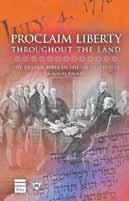
“Franklin further suggested that this picture be joined with the following motto: ‘Rebellion to Tyrants is obedience to G-d.’ That these scenes
from the book of Exodus loomed so large even in the minds of the men who were the most secular of the American founders is the ultimate indication that the imagery of the Hebrew Bible so dramatically impacted the thinking and language of America’s statesmen.”
The author of this statement, Rabbi Soloveichik, comes to this observation with a deep background in both Jewish as well as American history. He is director of the of the Straus Center for Torah and Western Thought at Yeshiva University and rabbi of New York’s oldest congregation, Shearith Israel.
In summing up the purpose and goals in the composition of this anthology, the book’s editors presented the following thoughts for your consideration:
“We also believe the Hebrew Bible should
remain an integral component of the American future. National continuity entails that change take place within the framework of a national tradition. That tradition is, of course, flexible. America is a nation that cares about equality and freedom, for instance, but what equality and freedom mean may change over time. However, it is our commitment to those concepts that provides the framework in which debate and change can take place.
“So too, the Hebrew Bible. It provides a part of the framework in which we understand and debate our national destiny, our place in world history, and our understanding of our own past. The American story integrates Hebraic insights, and this volume hopes to make it easier to uncover a fuller and more accurate version of the American past, and therewith, the American prospect.”
Previously published.
Write: Columnist@TheJewishStar.com
Published weekly except during certain religious and civil holidays by The Jewish Star LLC New York City office: 5676 Riverdale Ave Suite 311, Bronx NY 10471 • LI office: 2 Endo Blvd, Garden City NY 11530
Here’s how to reach The Jewish Star — Write: Editor@TheJewishStar.com. Call: 516-622-7461 ext 291
Editor & Publisher: Ed Weintrob
516-622-7461 ext 291
Jewish Star Associate: Nechama Bluth
516-622-7461 ext 241
Content: The Publisher endeavors to ensure that our content is within the bounds of normative halachah and hashkafah. Anyone who feels anything we publish may be inappropriate in this regard is urged to bring the item in question to the attention of the Publisher.
Advertising is accepted at the sole discretion of the Publisher and should conform to standards appropriate for distribution in an Orthodox community.
Send us your news! Editor@TheJewishStar.com
Advertising: Publisher@TheJewishStar.com
Kashrut: The Jewish Star is not responsible for the kashrut of any product or establishment featured in its pages. If you have questions regarding any establishment or product, including its supervision, please consult your rabbi for guidance.
Submissions: All submissions become the property of The Jewish Star and may be edited and used by the Publisher, its licensees and affiliates, in print, on the web and/or in any media that now exists or will exist in the future in any form, including derivative works, throughout the world in perpetuity,
without additional authorization or compensation. The individual or entity submitting material affirms that it holds the copyright or otherwise has the right to authorize its use in accordance with The Jewish Star’s terms for submissions.
Opinions: Views expressed by columnists and other writers do not necessarily reflect the position of the Publisher or of The Jewish Star LLC.
Distribution: The Jewish Star is available free in kosher food establishments, stores, synagogues, and curb-side newsboxes on Long Island, in New York City and elsewhere. To request free delivery to your location, write Publisher@TheJewishStar.com.
Copyright: All content is copyright and may not be republished or otherwise reproduced without written permission by The Jewish Star LLC; to do so without permission is against the law and halacha. For content reproduction write to Publisher@ TheJewishStar.com.
The Jewish Star subscribes to the JNS news service. It, or its contributors, own the copyrights on material attributed to them. The length and content of JNS material and all other submitted material may be edited by The Jewish Star. This newspaper contains words of Torah. While it is not considered shaimos, please dispose of it properly.

It was no small irony that I learned the news that Zohran Mamdani would be the Democratic candidate for mayor of New York and the odds-on favorite to win the general election while I was in Medora, ND, 1,755 miles from the city of my birth.
I was born in Manhattan, grew up in the New York City area, went to college at Columbia University, and spent much of my early life in and around the city. Though it’s been many years since I resided there, I have always thought of myself as a New Yorker, regularly attending cultural events in the city and rooting for its sports teams.
Rural, oil-drilling, country-music-loving North Dakota is about as far from New York in terms of culture and politics as you can get while remaining in the continental United States.
But as many Jews were panicking about the victory of Mamdani, a far-left Socialist who sides with those who seek Israel’s destruction, being in North Dakota — on a trip with members of the Council for a Secure America to learn more about the intersection of interests between supporters of Israel and those who work in the domestic energy industry — turned out to be a piece of unexpected good timing. I found myself surrounded by non-Jews who are ardent supporters of the Jewish state and simply appalled by the surge in antisemitism in this country, of which events in New York City are just the latest evidence.
That was a comfort on a day when a lot of New York Jews were talking about leaving the Big Apple, as well as a reminder that the current despair about the future of American Jewry should be tempered by remembering some basic truths about the overwhelming majority of our fellow American who do not practice our faith. North Dakota is among the least ethnically diverse and one of the whitest states in the union (82.9%), as well as the reddest. Presi-
dent Donald Trump won the state with 67% of its votes, with only West Virginia and Wyoming giving him more support. As such, it is no more representative of the United States as a whole than deep-blue, ethnically and racially diverse New York City, where those who call themselves white make up only 31% of the population.
The truth to keep in mind this week as the country reels from the news that someone like Mamdani may well be the chief executive of its largest and most Jewish city is that North Dakotans are far closer to the national norm in terms of their attitudes toward Israel and antisemitism than the 43.5% of New Yorkers who voted for Mamdani.
Polls have shown that the vast majority of Americans have continued to oppose the hatred of Jews and attacks on them. The real divide is along party lines, with Republicans — and to a lesser extent, independents — backing Israel by huge majorities. Among Democrats, support for Israel has become a minority opinion.
And that is why it is important to understand the Mamdani win as revealing more about the future of the Democratic Party, both in terms of its attitudes toward Jews and Israel, as well as a sharp turn to the left on other issues than it does about America as a whole.
As I wrote in April, in the aftermath of their 2024 defeat at the hands of Trump and the GOP, all of the enthusiasm and energy among Democrats has increasingly shifted to the hard-left intersectional wing of the party. There are still many moderate Democrats who are heavily represented among its officeholders — like Pennsylvania Gov. Josh Shapiro (who is Jewish), who credibly aspires to the 2028 presidential nomination — and vocal supporters of Israel, such as Sen. John Fetterman, also in Pennsylvania, and Rep. Ritchie Torres of the Bronx.
But the party’s base belongs to the hard left, especially among the younger generation of voters and politicians. It is to people like Rep. Alexandra Ocasio-Cortez (whose district includes parts of Queens and the Bronx), leader of the progressive “Squad” in the House of Representatives, who many Democrats are now looking for leadership.
The faction of the party that was led by Sen.
The radical’s primary victory tells more about what’s ahead for the Democratic Party than it does about the prospects for the survival of American Jews.
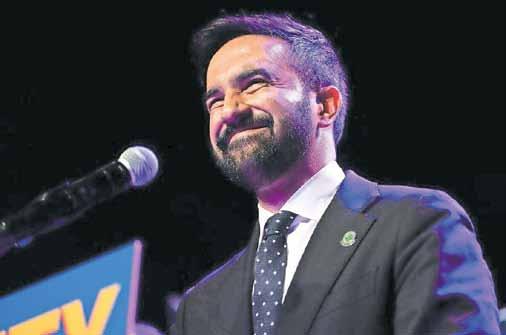
Bernie Sanders (I-Vt.) was bested by the party’s establishment in 2016 and 2020 when it nominated Hillary Clinton and former President Joe Biden.
Mamdani’s win in New York is another sign that the party’s base belongs to those who are deeply influenced by toxic left-wing ideologies like critical race theory, intersectionality and settler-colonialism, all of which falsely label Jews and Israel as “white” oppressors.
Mamdani, a Muslim who is, like AOC, a Democratic Socialist
•is a former college chapter president of the anti-Israel, antisemitic Students for Justice in Palestine
•is a supporter of the antisemitic BDS movement
•opposes the existence of Israel as a Jewish state; wants to “free Palestine” from the Jews
•and won’t even admit that the phrase “globalize the intifada” is, like the ubiquitous chants of “from the river to the sea,” a call for terrorism and genocide of the Jews.
Like AOC, he also subscribes to a catalog of far-left ideas about the economy and environmentalism that seek to destroy the canon of Western civilization, which would also ruin the country.
There are specific circumstances that enabled his win. The demography of New York City has shifted in the time since a Republican like Rudy Giuliani or even a moderate liberal like Michael
Bloomberg won the mayoralty. A critical mass of white ethnic or working-class moderate voters has left the city and gone elsewhere for better opportunities, lower taxes, and less congestion and crime.
Incumbent Mayor Eric Adams left the Democratic Party to run as an independent after the Trump administration ended his prosecution on federal corruption charges. The fact that his most credible moderate primary opponent — former New York Gov. Andrew Cuomo, who was compromised by multiple incidents involving sexual harassment and calamitous decisions that led to the deaths of thousands during the COVID pandemic — came into the race with so much baggage may have made Mamdani’s victory in a multi-candidate race inevitable. If Mamdani is to be defeated in November, Adams, Cuomo (who can run on an independent line) and Republican candidate Curtis Sliwa will have to unite, with two of them withdrawing in favor of a single candidate. Since that is highly unlikely, New York is likely to find itself governed by someone who is not merely a hard left radical, but a supporter of antisemitic and anti-Israel causes.
This will also give a boost to those on the left, including New York Times columnists Peter Beinart and M. Gessen, who seek to redefine the
See Be truthful on page 22

This Fourth of July marks an unprecedented time for American Jewry. For most of us, this day has always stood as the one golden date in the year when neighbors and communities come together to celebrate the common American ideal. It’s a time when we suspend our differences with neighbors and strangers, and lean on a mutual understanding.
But this year, Independence Day arrives in the shadow of one of the most consequential battles in recent Jewish history — US airstrikes that have taken out much of Iran’s nuclear facilities, following 21 months of a proxy war with Israel that started on Oct. 7, 2023, with the Hamas-led terrorist attacks. That assault became a catalyst for uncontrolled antisemitism in North America and around the world.
While many of us naturally worry about what it will take for Israel to rebuild its cities, kibbutzim and fractured economy, I also worry about what it will take for us to heal the divisions that exist in the United States. What will it take for Jews to feel comfortable and safe again within our own communities? Is that even possible?
Lessons from America’s early Jews about resilience and healing.
And where can we turn for historical insight?
As we celebrate our nation’s 249th year, I can’t help but wonder what America’s early Jews could teach us about resilience and healing. Like many American children growing up in the late 20th century, I was taught to appreciate the heroism of a relatively select number of American revolutionaries, like George Washington, Benjamin Franklin, John Adams and a few more colorful characters, including Paul Revere and “Light-Horse Harry” (Henry Lee III), who both served in the Continental Army against the British.
Absent from that list of heroes were America’s Jewish patriots, who risked their lives and their livelihoods to support the war. Francis Salvador, the son of a wealthy Portuguese financier, was the first Jew to be elected to South Carolina’s public assembly. It was a notable accomplishment, since Jews were banned in South Carolina from voting or running for office. He died in battle less than a month after the Declaration of Independence was signed into law.
Others, like the Polish financier Haym Salomon, used their business acumen, wealth and international connections to provide funding to support the revolution. He is widely credited as the financial brains behind the revolution, often positioning himself as a trustworthy guarantor for the government’s transactions. Like Salvador and other Jewish patriots, he was dedicated to seeing the new country succeed.
For many of America’s first Jewish citizens, however, it would take years — generations — to truly attain the right of equal representation. Just because the Constitution guaranteed Jews the right to hold office at the federal level didn’t mean they would enjoy the same freedoms at the state level. Nor did it mean that

Jews unilaterally had the right to vote. Voting laws, after all, were decided at the state level.
Jonas Phillips, who escaped the pogroms in Europe to search for a better life in the British colonies, exemplified the kind of fortitude and spunk it would ultimately take to change attitudes toward Jews. In 1787 — 10 days before the Constitution was to be ratified — Phillips wrote to George Washington and appealed to the new government to endorse the right of religious freedom for all citizens. “To Swear and belive [sic] that the new testement was given by devine inspiration is absolutly against the Religious principle of a Jew and is against his
conscience to take any such oath. By the above law a Jew is deprived of holding any public office or place of Government which is a Contradectory to the bill of Right Sect. 2 … .”
But his fight on this topic wasn’t over. In 1789, he petitioned the Pennsylvania state convention, asking the state to remove restrictive wording in its constitution that favored Christian citizens. The following year, the constitution was changed, granting new rights to non-Christians to hold public office. His efforts also helped to inspire other states to follow suit.

One of the many lessons we learned during the nearly two weeks of war between Israel and the Islamic Republic of Iran is that the Tehran regime is built upon cowardice and incompetence.
The Israeli and, later, US strikes against the regime’s military industrial complex — its nuclear facilities, its top commanders, its nuclear scientists, its missile factories and its propaganda stations among multiple targets — underscored the impotence of its armed forces. Faced with deadly, targeted strikes based upon intelligence that suggested a breathtaking penetration of Iran’s power centers by the Mossad, Iran could only lash out at Israel’s civilian population centers as a riposte, its missile attacks decreasing as its stocks were fast depleted by repeated Israeli bombing.
That’s not to diminish the horrible suffering endured by Israelis on those long, sleepless nights, with at least 28 dead and hundreds wounded during the barrages. My point is that Iran never looked like a contender, never mind a winner, in a war against a better-
Jews need to be vigilant, learn self-defense, acquire a gun if they legally can — and focus on political life.
trained, better-armed, better-disciplined force with a high morale.
Think of the warnings over the past 20 years about the dangers of attacking the ayatollahs: They’ll unleash a nuclear weapon, they’ll have Hezbollah send 150,000 missiles into Israel, they’ll have terrorists invade the Jewish state by land and sea from Syria and Lebanon. None of that happened or even looked like it would happen.
What did happen was that, without an Israeli attack on Iran, its Hamas proxy carried out a despicable pogrom in Israel on Oct. 7, 2023: Future historians will identify this as the event that led to the regime’s final unraveling, with June 2025 being as significant a moment in this war as June 1944 was in World War II.
Anyone who understands the fundamental nature of this long and terrible war against the Jewish state should feel encouraged, and even elated, as we move forward. But we are neither. We remain both weary and wary, constantly troubled by the similarities between this phase of Jewish history with the horrors of past phases.
This is a vulnerability that the Iranian regime, which is down but not out, can skillfully exploit. The regime that produces careless officers and cowed soldiers nevertheless excels at terrorism and spreading the fear of terrorism.
Even if the regime implodes or is overthrown before it marks the 50th anniversary of the Islamic Revolution in 2029, the ayatollahs can go to their graves satisfied by the destruction they wrought during the lifetime of the Islamic Republic. There was the bombing of the US Marine Barracks in Beirut in 1983, the bombing of the AMIA Jewish Center in Buenos Aires in 1994, the missile attack on US personnel at the Ain al-Asad Airbase in
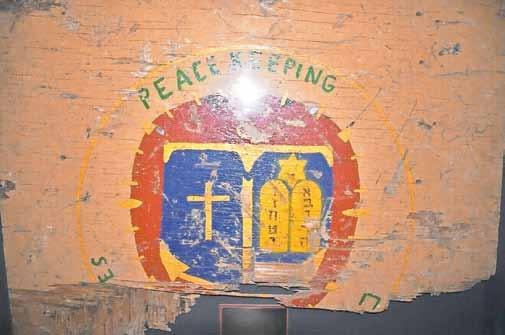
Iraq in 2020, among dozens of examples. As long as it survives, the regime’s goal is to add to that list as copiously as possible.
In this post-Oct. 7 world, Iran’s rulers have one advantage that they didn’t enjoy before: the alignment of significant swathes of the Western public, even in countries that might themselves be targeted for a terrorist outrage. In the words of a piece of antisemitic graffiti daubed last week on a synagogue in Melbourne, Australia: “Iran Is Da Bomb.”
I am not, of course, talking about the great majority of our fellow citizens. But Iran doesn’t need the great majority. What it needs — and what it has now — is a visible, angry
movement with significant numbers.
For nearly two years, Iran’s state media has lovingly covered the mass demonstrations in Western capitals celebrating the Oct. 7 atrocities and demanding Israel’s elimination as a sovereign state.
Part of the reason it has done so is the realization that Jewish communities in the Diaspora, demonized as an Israeli “Fifth Column,” don’t have the protection of the Israel Defense Forces. They have to depend on increasingly unreliable, increasingly politicized police services in any number of cities, as well as contend with widespread indifference or even

Under the orders of President Donald Trump, on June 22, American airmen flew B-2 bombers tens of thousands of miles, releasing powerful “bunker-buster” bombs, destroying Iran’s nuclear-weapons factories as American sailors on a distant submarine fired salvos of dozens of Tomahawk missiles.
The mission followed nearly two weeks of aerial assault by the Israel Air Force. Coordinated efforts between two allies ensured a military success with the nuclear sites at Fordow, Natanz and Isfahan, and other strategic facilities, either obliterated or severely damaged.
Now let’s turn the clock back some 80 years.
One day after Christmas in 1944, US Air Force pilot George McGovern, who would someday be the 1972 Democratic presidential candidate, led a squadron of B-24s. They dropped 50 tons of bombs on oil plants in Monowitz, an industrial section of Auschwitz where more than 1 million people were murdered. The target was located less than five miles from the crematoria
The US War Department rejected proposals to attack trains to Auschwitz and the death camp itself as ‘impracticable.’
and rail lines that transported Jews to the camp.
Despite being repeatedly asked, President Franklin D. Roosevelt disapproved of bombing the rail lines. Because of his indifference, untold numbers of Jews who could have been spared were murdered.
Trump had decided that the threat of a nuclear Iran was too great and, despite all the risks implicit with a hot war, felt it was his duty to act.
By contrast, regarding the Iranian threat, former Presidents Barack Obama and Joe Biden had jawed about not allowing Iran to have a bomb and that they had Israel’s back. They naively chastised Iran with warnings of “Don’t” that were disrespectfully ignored.
Across the Mideast, they had postured with threats of “red lines,” but those were crossed. They signed agreements that effectively gave Iran a legal path to a nuclear bomb.
During Trump’s first presidential campaign announcement in 2015, he said of Obama, “Take a look at the deal he’s making with Iran. He makes that deal, Israel maybe won’t exist very long. It’s a disaster, and we have to protect Israel.” Trump gets high marks for prescience, loyalty and consistency.
Iran, for decades, vowed “Death to Israel” and “Death to America.” Iran had a clock in Tehran that counted down to Israel’s demise in 2040. Trump must have heeded the sage advice once uttered by former Israeli Prime Minister Menachem Begin, who said, “When someone says they are going to kill you, believe them.”
The story is simple: Trump bombed Iran, a country that fanatically sought another Holocaust.
To destroy Israel, Iran had created a network of terrorist proxies, developed rocket technology to deliver nuclear warheads and pursued nuclear technology that was only useful for weaponization. Trump’s bias for common sense and action

did the world a favor. He was resolute, despite catastrophizing predictions of a regional war, thousands of dead Americans and World War III.
David S. Wyman’s “Abandonment of the Jews” and Rafael Medoff’s “FDR and the Holocaust” present ample evidence of Roosevelt’s shameful and cunning behavior, ignoring the systematic annihilation of 6 million European Jews.
In these books, we learn that the US War Department rejected the proposals as “impracticable,” claiming such raids would require “considerable diversion” of planes needed for the war effort. US officials claimed to have conducted a “study” that found that bombing Auschwitz was not militarily feasible, but no evidence of the al-
leged study was ever found.
History will show that Trump, who bombed Iran to halt the mullah’s plan for another Holocaust, was far more courageous and honorable than Roosevelt, who did not bomb the rail lines to Auschwitz.
Trump deserves the full-throated appreciation of Israelis, Americans and all Western countries. He is especially due gratitude from today’s Jews, regardless of their current political preference. Trump should be celebrated as the president who bombed the proverbial “rail lines.” Alan Newman is the author of the novel “Good Heart” and a pro-Israel advocate who holds leadership positions at AIPAC and StandWithUs. Write: Columnist@TheJewishStar.com

Being that confluence is a biological term, as it refers to the percentage of the surface of a culture dish that is covered by adherent cells, I find myself employing “confluentiality” as a newly created term to describe the flowing or blending together of the thinking, rhetoric and performance of a new breed of Jewish anti-Zionists, and their radical progressive outlook and politics. These are people who refuse to face the truth while never admitting an error.
Their slogan, “Abolish Zionism” or (in its Iranian version) “Eliminate the Zionist regime,” has been sounded. It is not that states have a right to exist; it is rather that people do. And so, as the cloud-cuckoo-land theorizing proposes, while “a Jewish state has become the dominant form of Zionism … it is not the essence of Zionism.” What is the “essence of Zionism is a Jewish home in the land of Israel … not a Jewish state but a Jewish society, a Jewish home.”
How is that “home” to survive? Throughout the centuries, Jews have succeeded in fashioning vibrant Jewish societies in Babylon, Persia, Egypt and Germany, to name a
The inverse positioning of history in the past 150 years rings hollow.
few locations, and yet the survival of Jews was not assured, at least not adequately.
Zionism, however much Jewish antiZionists deny and seek to disprove, is Judaism. The first Jew listened to a call to leave his home and trek to a land wherein he and his progeny would become a nation. Jews, already recognized by Pharaoh as a nation, exited Egypt and their status as slaves with their end goal being a national homeland — their “native land” — as Moses explained to his father-in-law. Twice expelled and denied national independence, they returned from all over the lands of dispersion and exile.
All this history is not fanciful. It is attested to by documents left by non-Jews and Jews — recorded history in stone, papyrus and parchment. It cannot be ignored or explained away as some sort of Europeanbased settler colonialism that developed only in response to antisemitism.
This inverse positioning of history in the past 150 years rings hollow. Yet they persist and attempt, time and again, to reconfigure a “good” argument from the left to counter any justification for Zionism.
Take, for example, Shane Burley who writes, while trying to downplay the antisemitism from the left, that there is a “coherent campaign” that claims “that antiZionism (and any criticism of the movement for a Jewish state) is a covert form of antisemitic hate, once religious or ethnic and now political.”
It is “an article of faith.”
He argues that the idea that “a militarized, ethnocratic state in historic Palestine is categorically in the interest of all Jews.” Meaning, Zionism is actually the Jews’ worst enemy.
His logic continues in that “Israel is the
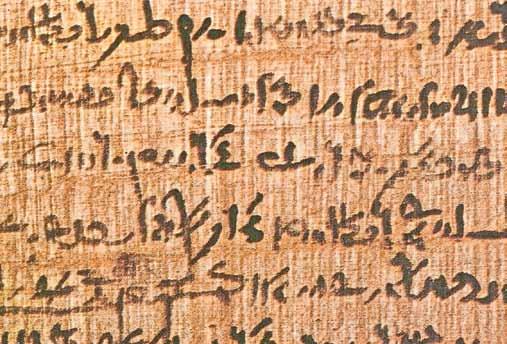
least safe place on the planet to be a Jew.”
Moreover, “Israeli apartheid has never proven to deliver Jewish safety, but instead benefits a class who profits from colonial exploitation.”
Little safety is built since Israel is imperialistic: “Jews have always been safer in societies that are cosmopolitan and democratic, when nationalism gives way to pluralism, and when Jews build alliances with other people facing marginalization and oppression.”
I would argue that those very alliances being built by liberal and progressive Jews are what not only lead to assimilation and loss
of genuine Jewish identity, but also embolden those forces to attack Jewish ideas, then Jewish institutions, and then, the Jews themselves.
Irecently spoke with someone close who lives in Manhattan who related how twice this individual was approached — once by a man and the other time by a student couple. Attracted by the open display of a Jewish Star of David pendant, they attempted to engage on the issue of Gaza, and when rebuffed, became abusive, menacing and even threaten-
The new Fennessy Family Emergency Department at Mount Sinai South Nassau doubles the size of our previous emergency department, o ering 54 private exam rooms with clear lines of sight for physicians, nurses, and support sta . Our new emergency department also o ers a separate triage area, dedicated areas for children and behavioral health patients, and has been designed to reduce wait times and improve patient outcomes.
The Fennessy Family Emergency Department is located within the new Feil Family Pavilion, opening later this year, which will have 40 new critical care suites and nine new operating rooms, designed to support the most complex surgeries on the South Shore.
To learn more visit www.mountsinai.org/feilpavilion



Continued from page 18
term “antisemitism” to allow open Jew-haters to claim that they are innocent of the charge. That this kind of gaslighting is regularly platformed in the Times — the publication that is the flagship of American liberalism as well as the most influential newspaper in New York — remains deeply concerning.
While an election in New York City is not a bellwether for American politics generally, it will put more wind in the sails of Sanders, AOC and others on the hard left who appear to be the future of the Democratic Party. Democrats seem to be prioritizing their obsessive hatred of Trump over a willingness to consider policies and candidates that might win back the sensible middle of American politics, in addition to working-class voters who have abandoned them and think of the president as their champion.
Continued from page 16
So the details are, in truth, secondary to the human drama played out that day.
Yes, Moses did things he might not have done, should not have done. He struck the rock, said “we” instead of “G-d,” and lost his temper with the people.
The real story, though, is about Moses the human being in an onslaught of grief, vulnerable, exposed, caught in a vortex of emotions, suddenly bereft of the sisterly presence that had been the most important bass note of his life.
Miriam had been the precociously wise and plucky child who had taken control of the situation when the life of her three-monthold brother lay in the balance, undaunted by either an Egyptian princess or a rabbi-father. She had led the Israelite women in song, and sympathized with her sister-in-law when she saw the price she paid for being the wife of a leader. The Midrash speaks of her as the woman in whose merit the people had water in a parched land. In Moses’ anguish at the rock, we sense the loss of the elder sister without whom he felt bereft and alone.
The story of the moment Moses lost his confidence and calm is ultimately less about leadership and crisis, or about a staff and a rock, than about a great Jewish woman, Miriam, appreciated fully only when she was no longer there.
Continued from page 17
the plight of Gilad Shalit — as well as of those who were thankfully released from Hamas captivity after the horrors of October 7, and that we continue to pray for the release of the remaining 49 hostages who still tragically remain in captivity in Gaza since then.
This week, I choose to reflect upon the horrors of captivity in general, and to feel the pain of those still held captive and their loved ones. This week, their suffering is especially relevant because it is in this week’s Torah portion, Parshat Chukat, that we read of the very first Jew to become a prisoner of war.
The verse (Numbers 21:1) tells of the Canaanite King of Arad who “engaged Israel in battle and took some of them captive.” Rashi, following the Midrash, hastens to add that only one prisoner was taken, a maidservant. Be that as it may, this is the first record of a Jew being taken into captivity in the heat of battle.
The reaction of the people to the horror of having a captive snatched from their midst is a powerful one: “Then Israel made a vow to the L-rd and said, ‘If you deliver this people into
Democratic Party leaders like Majority Leader Chuck Schumer, of Brooklyn, who pretends to be the shomer or “guardian” of Israel and the Jews but is more worried about running afoul of the radical left, have made it clear that they are not going to stand up against AOC and Mamdani. Though they don’t share their beliefs, officeholders in both major parties always follow the lead of the base.
That is a shocking and disappointing development for an American Jewish community that is already reeling from an enormous increase in antisemitism that has gone mainstream in legacy media, academia, the arts and popular culture. Some younger Jews, indoctrinated by the radical left throughout their years in school, have embraced people like Mamdani and tend to rationalize his anti-
our hand, we will utterly destroy their cities’.” And they indeed proceed to do so, to the extent that the collective name of all the cities became Hormah, which means “doomed to destruction.”
It may not be politically correct these days to call for the utter destruction of the cities of our enemies. The morality of such a response surely needs to be contemplated. But one thing is for certain: the loss of one of our own, soldier or civilian, has always been taken very, very seriously. Back then, with our maidservant, and now, with our brethren still held captive.
We do not know how Moses or Aaron responded, as it was the people of Israel who asserted that they could not tolerate the taking of a captive from their midst. Furthermore, we can never know what they really learned of the fate of that captive, nor of whether or not she was successfully recovered.
But we do learn that our response to the captivity of one of our fellow Jews must be one of indignant and effective action. Once again, the Torah portion of the week, which ties Korach with Chukat, astoundingly carries a message of relevance for today and for this moment in time.
This Sabbath, as we utter a prayer for the well-being and safe return of those still held captive in Gaza, let us fully realize that we must do all we can to advocate for their release and that they are tragically suffering that most dire of calamities: captivity.
Write: Columnist@TheJewishStar.com
Continued from page 17
panim, G-d’s hiddenness. When life feels irrational, when there are no answers, when pain and loss leave us disoriented, the Torah says: don’t give up. Even when nothing makes sense. Even when it all feels backwards. Hold on. Keep walking. Trust the process.
And that message resonates even more today.
We are living in Galus, marked by clashing perceptions and spiritual confusion. We don’t feel the same euphoria we experienced after the Six-Day War, when the Kotel was reclaimed and history seemed to come alive. We’re unsure how to interpret the aftermath of the war with Iran. But we have the message of the Parah Adumah.
We may not understand how Hashem is moving the world, but we believe in Him. We hold on to our Emunah that the world is still moving in accordance with His Will, even when we cannot comprehend it.
Rabbi Benny Berlin is spiritual leader of BACH Jewish Center in Long Beach.
Write: Columnist@TheJewishStar.com
Zionistic and antisemitic rhetoric. That leaves most liberal Jews, who still make up a large majority of the community, without a political home.
This means the battle against antisemitism is now largely being waged by the political right and, in particular, by Trump, who is pro-Israel and waging a much-needed war on academic institutions that have normalized antisemitism and the war on the West.
are not alone
That’s a difficult truth for liberal Jews who hate the president. But it is a reminder that most Americans, whether politically moderate or residents of deep red states like North Dakota, observe the mainstreaming of antisemitism in New York with horror, and oppose people like Mamdani and other radical
Continued from page 17
deaths.” [i.e. Nadav and Avihu (Vayikra 10:3) and what Talmud Shabbat 55a learns from Yechezkel 9:6]
There is a more blatant connection between Miriam’s death and Eglah Arufah. The Talmud (Avodah Zarah 29b) learns from a “gezeirah shavah” (a parallel word in two Torah cases) on the word “Sham” (“there”), that just as one is forbidden from deriving benefit from the slaughtered cow (eglah arufah), it is forbidden to derive benefit from a corpse (such as Miriam was).
Baal Haturim connects Parah Adumah, Miriam’s death and Eglah Arufah through equating the numerical values of “Issur B’hanaah” (prohibition of benefit) (340), the word “sham” (340), “mechaper” (brings atonement) (340), and “Parah Adumah” (341: gematria has a +/-1 factor).
Further, the Kli Yakar (19:2) connects the young cow (Eglah) slaughtered to achieve atonement and the Eigel (Golden Calf) in their giving or needing to achieve atonement for murder; shortly before the Golden Calf was formed, Chur was murdered.
With Miriam’s death, the people missed an opportunity to achieve the atonement they so needed. This lost chance was the cause (if not the blessing!) that absolved Moshe and Aharon once and for all from leading the people from whom they had grown apart.
The Alshich describes Moshe’s and Aharon’s intent to deal with burying their sister. When they saw a large crowd coming, Aharon praised the people for wanting to do kindness, but Moshe questioned their intent as they weren’t following the proper social order. And when they heard Moshe describing their visit negatively, they fought with him.
Rabbi Yosef Karo explained their confronting Moshe, “See! Miriam died a natural death! If we could only die a natural death! But who wants to die from thirst? Why did you bring us to the desert?”
They erred! Many commentaries point out that they should have responded properly over the loss of this righteous woman, a prophetess, sister of Moshe and Aharon, and they should have expressed their gratitude for having water in her merit.
The well was taken away so the people would realize it had been there in her merit. Had they treated her death with proper reverence, as the Torah Temimah described, treating Moshe and Aharon with kindness, the water would return. They didn’t — and they suffered on account of it.
Every generation has truly great leaders, who are revered, honored and respected in their lifetimes. It is our responsibility to make
Democrats. And the more that the Democratic base swings to the left, the more likely it is that their party is going to continue losing national elections.
The shift among Democrats is good news for the GOP but bad news for the Jewish community. It’s also bad for the country as a whole to have one of its two major parties fall into the hands of radicals. And it represents a sea change for Jews in New York, who are now realizing that they may be better off moving to a red state like Florida.
As worrisome as this is, it is also a moment for Jews to realize that they are not alone. Hard as it may be to accept that they are now under siege in institutions and cities where they once felt most at home, most Americans outside the nation’s metropolis stand by them.
Write: Columnist@TheJewishStar.com
the most of their time on earth in enhancing our lives. When their time on this earth is over, we must feel the loss in the deepest depths of our being.
We need the atonement that comes with such a loss.
Avi Billet, who grew up in the Five Towns, is a South Florida-based mohel and rabbi of Anshei Chesed Congregation in Boynton Beach. This column was previously published.
Write: Columnist@TheJewishStar.com
Continued from page 19
In 1826, more than half a century after the Declaration of Independence was adopted, Maryland became the last state to pass a law permitting Jews to hold public office. Maryland’s “Jew Bill” also formally codified the right of Jews to vote in public elections.
“Hatred of Jews and imported anti-Semitism from Europe did exist, but it did not flourish during the common struggle to separate from the power of England,” wrote Cantor Sheldon Foster Merel in a 2019 article. But “Jewish participation in the war did not assure the Jewish population [of] full, equal rights or erasure of anti-Semitism.”
Phillips, like many patriots who served in the war, became role models, both in service and values, for future generations. His grandson, Uriah Levy, became the first U.S. Naval commandant, a promotion he earned following his service in the War of 1812. He, too, was a vocal advocate for religious pluralism.
Perhaps the greatest legacy of America’s first Jews, however, was their faith in their power to effect change. The Jewish population amounted to barely 0.1 % of the colonies’ 2 million citizens, yet played a significant role in transforming their futures, and strengthening the rights and opportunities for generations that followed — rights we still enjoy today.
Jan Lee is an award-winning editorial writer and former news editor.
Write: Columnist@TheJewishStar.com
Continued from page 19
contempt among elected officials, university administrators, journalists, talking heads and similar influencers. That remains the case, even though, as I recently argued, elements of the pro-Hamas movement have grown frustrated with protest, as happened with the remnants of the New Left in the early 1970s. Now, as back then, a turn towards armed vioContinued on next page
Continued from previous page
This beast is fed by the worsening political atmosphere. This has already resulted in an eye-watering increase in the number of hate crimes against Jews inside and outside the United States, including verbal abuse, vandalism, beatings and worse. In the United States, Jews compose less than 2% of the population but are the victims of 15% of hate crimes, according to FBI data in 2024. The Iranians know all this and are prepared to weaponize that knowledge.
They know, too, that there are Americans who will deploy arson, guns and homemade bombs against Jewish citizens, as has already occurred on three separate occasions this year.
They know that among those under 40, especially, an unthinking culture of “Palestinianism” has set in — a philosophy of life that excludes any suffering that isn’t Palestinian, ignores any wrongdoing that is not Israeli, and recycles some of the most venomous myths about Jewish influence and Jewish power as justification. In such an environment, violence becomes a credible, morally worthy option.
Terrorism will also enable Iran to remind the outside world that it can strike at their heartlands as well, which is why Jewish people and facilities are the most obvious but not the only targets.
Exiled Iranian opposition figures and media outlets have already discovered that the regime will come after them for the purposes of harassment or even assassination. Western diplomats and intelligence officials are also in the firing line — in that regard, no one should forget the kidnapping, vile torture and murder of CIA Beirut station chief William Buckley by Iranian-backed terrorists in 1985. The regime behind Buckley’s fate is the same regime that rules Iran today.
Jews need to be especially vigilant. They need to learn self-defense techniques. If they can legally acquire a gun for self-defense purposes, they should seriously consider doing so. But beyond these security measures, we need to focus on political life.
A difficult few months lie ahead, with the distinct possibility that the ceasefire between Jerusalem and Tehran will disintegrate. And in November, New York City’s mayoral election, in which the Democratic Party is fielding an antisemitic candidate who rejects Israel’s right to exist as a democratic, Jewish state, will become another rallying point for proHamas agitators worldwide.
That’s maybe why, even though we are winning the battle, it sometimes feels like we’re losing the war.
Ben Cohen is a senior analyst with the Foundation for Defense of Democracies.
Write: Columnist@TheJewishStar.com
Continued from page 20 lence is discernible.
ing, both verbally and in making hostile motions.
In a book he has published, Burley presents the progressive, intersectional approach, saying the real danger is from right-wing nationalism, and that standing in solidarity with Palestinians and forging coalitions across what he thinks are the “needed communities” will overcome the politics of division and fear. I think the almost exact opposite. I think the danger to Jews comes from all corners and that left-wing antisemitism — from Marx to Soviet Russia, and with too many Jews involved—is the most irrational and, therefore, most egregious threat since it ignites an array of ethnic, cultural and religious groups to hate Jews than the antisemitism of the right. Burley himself displays some irrationality in an interview in Jacobin, an American So-
cialist magazine based in New York, where he discusses the subject of Jewish anti-Zionists who have a long history of their “politics … embedded deeply within their Jewish identity” with Benjamin Baltheser. He does so with barely disguised admiration for “how Jews in both the Old Left and the New Left convened their sense of Jewish identity, how they understood and responded as Zionism emerged … and how this model of Jewishness has found its continuity in the radical Jewish activism attempting to halt the genocide in Gaza.”
Is their Jewishness deeply embedded, or have they corrupted Jewish values, rearranged them just to be fashionable and paraded them out on a walkway of artificiality?
And who are they? He lists “the Jewish section of the Communist Party, the Jewish labor movement, the Jewish component of the Jewish Left and SDS … neo-Bundist Jewish New
Left organizations,” most of whom have directly or otherwise facilitated not only an ethereal form of antisemitic thinking but the erasure of Jewish culture, language and ritual, including not a few murders of Jews by Communists dictatorships or through the actions of Arab terrorists they glorify and support.
On Sept. 1, 2020, I wrote here that Jewish “progressives, in lending their support to the radical movements we witness rampaging through America’s streets, in identifying with their goals and, most importantly, in subjugating the interests of Jews to these, they increase not only the probability of Jewish community debilitation but in physical attacks on Jewish institutions as well. Physical attacks on Jews is the next stage.” I do not think events have disproved my prognosis.
In 1910, Jabotinsky wrote of a joint May Day march by Socialist workers in Vienna: “A group of Jewish workers and apprentic-
es from the Poale Zion party dared to take part in the celebration. They marched through the city with their red banners, the banners had Jewish slogans on them, and they sang Jewish songs. They thought that it was not a sin, since the Germans had German slogans and the Czechs had Czech slogans and songs. But when they showed up at the general Lokal in the Prater Park, one of the editors of the Arbeiter-Zeitung, who was also the organizer of the festival, approached them and ordered them either not to sing the Jewish songs or to leave. ‘Otherwise,’ he added, ‘I cannot guarantee…’ They left.”
That they had to leave has been repeated many times since, all over the world. What we are required to do, ourselves, is to ask where Burley’s enthusiasm will leave us tomorrow.
Yisrael Medad is an American-born Israeli journalist and political commentator.
Write: Columnist@TheJewishStar.com























